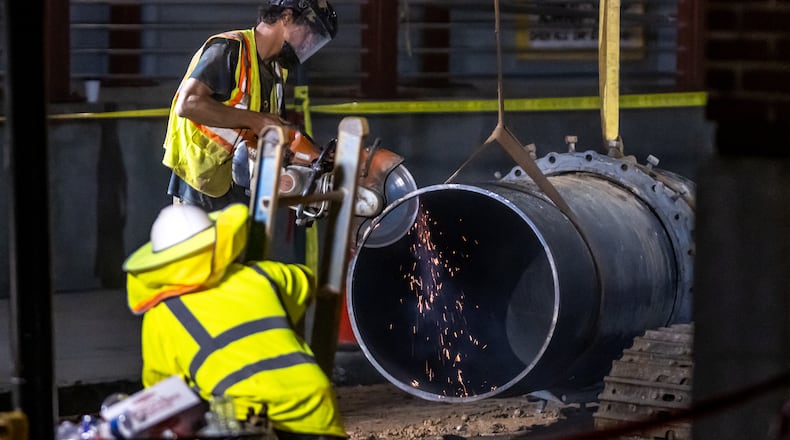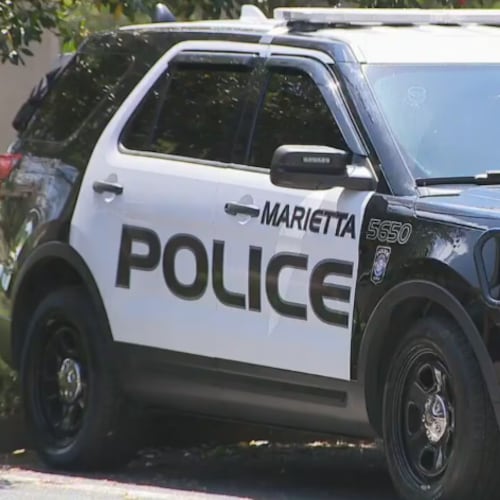The U.S. Army Corps of Engineers is slated to take on a $1 million study of Atlanta’s water lines following a series of severe breaks that left thousands without clean drinking water for nearly a week.
Earlier this month, Atlanta residents began noticing slowed water pressure or no pressure at all after a large water main break on Joseph E. Boone Boulevard disrupted the city’s water supply. The chaos didn’t stop there, another break in Midtown extended the crisis. Many were without clean drinking water for six days.
Atlanta Mayor Andre Dickens told City Council members on June 3 that officials with the U.S. Army Corps of Engineers were on the way to help evaluate the situation. But since, not much has been said about exactly what the agency will be doing.
On Friday, the Savannah District of the U.S. Army Corps of Engineers announced it was collaborating with the city of Atlanta on a $1 million “risk, resiliency and water line condition study.”
The assessment — scheduled to take place over the next two years — will evaluate potential risks of the water and sewer system and aim to enhance resiliency across some 3,000 miles of pipes overseen by Atlanta’s watershed department.
Credit: John Spink
Credit: John Spink
“The U.S. Army Corps of Engineers are here and they are on the ground and just getting started,” Dickens said on June 5 when he announced that repairs had been completed on the city’s water main breaks.
According to the federal agency, the comprehensive study aims at developing a prioritized list of actions the city can take to get ahead of any potential breaks in the future. Teams will estimate the remaining life cycle of the city’s pipes as well as suggest long-term capital projects necessary going forward.
“This is crucial as the city continues to grow and prepare for the future,” the Army Corps said in a press release.
The city of Atlanta has its own internal capital improvement plan and evaluation of pipes that are nearing the end of their life span — or in many cases way past when they should be replaced.
But solving Atlanta’s water infrastructure woes comes with a hefty cost.
“I will be asking the feds for more money — lots more money,” Dickens said earlier this month. “That’s going to be a number that’s in the ‘B,’ billions. It’s not going to be a small number.”
About the Author
Keep Reading
The Latest
Featured





